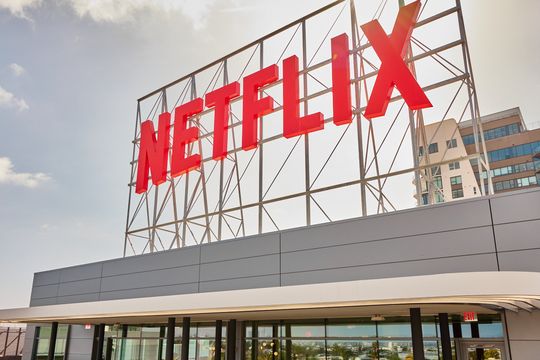Lower-priced ad-tier should accelerate subscriber growth
Shares of Netflix Inc. pulled back Monday, reversing an early rally, after Oppenheimer’s new analyst covering the streaming video giant spelled out reasons why it’s time for investors to jump back in.
The stock NFLX, +1.46% rose as much 2.1% just after the open, but was recently down 1.4% in midday trading, to pullback from a one-month closing high in the previous session.
Analyst Jason Helfstein assumed coverage of Netflix, and raised the rating to outperform from perform. He set a $325 price target on the stock, which implied about 37% upside from current levels.
Not only will the launch of a lower-priced ad-tier subscription plan attract some first-time subscribers, Helfstein believes there’s a larger opportunity to re-engage those who have previously discontinued service.
“Ad-tier launch should accelerate subscriber growth, drive ARPU [average revenue per user] and slow churn,” Helfstein wrote in a note to clients.
He also believes Netflix will command high cost per thousand (CPM) from advertisers, given that it sill has the highest viewership in the industry, and as streaming continues to take share from TV.
“[Netflix] attracts a significant audience for releases of marquee shows, comparable to awards shows and major sporting events, suggesting the company can sell ads at CPMs well above the normal TV average,” Helfstein wrote. “In addition, it could choose to release shows in conjunction with large advertisers’ product launches.”
He believes Netflix’s move to crack down on password sharing, its partnership with Microsoft Corp. MSFT, -0.09% on the ad-supported subscription plan and the move into the gaming arena could offer further upside to results and the stock.
With Helfstein’s upgrade 14 of the 45 analysts surveyed by FactSet are bullish on Netflix, while 6 are bearish and 25 are neutral. At the end of 2021, 34 of 47 analysts were bullish, 4 were bearish and 9 were neutral. The average stock price target has fallen to $244.91 from $681.79 over the same time.
Meanwhile, Netflix’s stock has been on a tear in recent months, as better-than-expected second-quarter results reported in July helped fuel a rebound. That followed a hugely disappointing first-quarter report in April, in which the company said it lost subscribers for the first time since its infancy.
After plunging 72.4% year to date to a five-year closing low of $166.37 on May 11, the stock has soared 42.3% since then. In comparison, the SPDR Communication Services Select Sector exchange-traded fund XLC, +0.58% has fallen 9.5% since May 11 and the S&P 500 index SPX, +0.69% has lost 1.9%.

